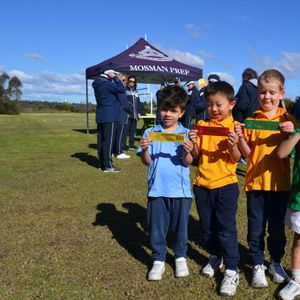Piloting the Digital Plane - Part 1
‘Raising children and adolescents in a digital world is hard... really hard. Why? Most parents had predominantly analogue childhoods and adolescence where we stared at the sky and not a screen! However, we’ve been forced to raise kids and teens in a digital world: they’re living in a tsunami of screens and social media. We wrestle with the fact that our children will inherit a digital world, so digital amputation simply isn’t an option.’ - Dr Kristy Goodwin
There is no effective parachute on board this aircraft! It is up to us to manage the controls.
Technology is an important (and mandatory) part of the School Curriculum, which aims to equip our children with essential future-proofing skills for a rapidly changing world. It caters for three fundamental biological drivers - our need to connect, to feel competent and to be in control.
It is also addictive! Engagement with technology can release dopamine from the brain, impeding logical thinking, causing us to lose track of time, providing addictive novelty, and a feeling of never ‘being done’.
In our Empowering Parents Session last night, Dr Kristy Goodwin suggested that to develop healthy technology habits, our kids and teens need their parents/carers and educators to be the pilot of the digital plane and not the passenger. When adults assume the role of pilot, they help their child to navigate the digital terrain. Even though many parents and educators may feel ill-equipped to be the pilot because they feel they lack the technical skills and knowledge our ‘screenagers’ display, we have two vital advantages they don’t yet have:
(i) life experience; and
(ii) a fully developed prefrontal cortex (the part of the brain that’s responsible for high-order thinking, logical decision-making and impulse control, which doesn't fully develop until the twenties).
When parents and educators are the pilot, they can help young people deal with turbulence and other crises without crashing the plane. When teens go in the wrong direction, parents can help them course-correct. When our teens are facing scary digital dilemmas, (like cyber-bullying, exposure to pornography, violent or inappropriate content) they’ll go to the pilot and not fellow-passengers to help them. However, they’ll only do this if parents and educators are sitting in the pilot’s seat AND if we don’t use screens as a punishment tool.
Being the pilot means establishing and enforcing BOUNDARIES to develop healthy technology habits. Firm and consistent boundaries (developed in consultation with their children, who really should be the co-pilots not just passengers) ensures that screens don’t derail basic needs for healthy development and help to form healthy technology habits.
‘Boundaries are like seat restraints - your kids need them, but they don’t particularly like them much.’
Dr Kristy proposed six areas of boundary consideration - How much? What? When? Where? With whom? How? In this edition of the Messenger I will summarise the first two and cover the remainder over the next two weeks.
How much?
- It’s important to ensure that time with devices isn’t encroaching on a child’s developmental priorities (It’s near impossible to prescribe an exact ‘digital dose’).
- We always have to consider the displacement effect of screen-time and determine whether time online is adding value. It’s a matter of priority!
- Research consistently tells us that children have seven, basic developmental priorities that will ensure their optimal health and well-being. It’s critical that screen-time doesn’t displace opportunities for these basic psychological and physical needs to be met. For optimal health, learning and development your child/teen needs: love, language, sleep, play, physical, nutrition, and executive functioning skills.
- Outside of school hours (each day) kids need a minimum of 1 hour of movement, 9-11 hours sleep (5-12 year olds), and no more than 2 hours screen time.
- It’s critical that screens aren’t considered taboo, as this will drive your teen’s behaviour underground.
What?
- Content is king. What your child/teen is doing online is so much more important than simply quantifying ‘how much’ time they’re spending online. Is their time online for leisure or learning? Is it active or passive? Is it age-appropriate and safe?
- Knowing what apps, social media platforms, websites and games your child/teen has access to and installed on their devices is paramount.
- This is why open and ongoing conversations about technology are important and why using screen-time as a punishment tool is something to be strongly discouraged.
- It’s our job as parents to ensure that our children and teens only have access to appropriate content on their devices. As pilots of the plane, parents must keep digital devices in publicly-accessible parts of the family home, and install Internet-filtering tools on all Internet-enabled devices (including the Smart TV which is often overlooked). Dr Kristy Goodwin personally uses and recommends The Family Zone.
The use of digital devices will continue to increase. We need to ensure that we are the pilot, by establishing digital guidelines and boundaries with our children, showing an avid interest in their online activities, installing Internet-filtering, and fiercely protecting their basic critical psychological needs.
Peter Grimes | Headmaster
Reference:
Dr Kristy Goodwyn - Link - Raising Your Child Online




























